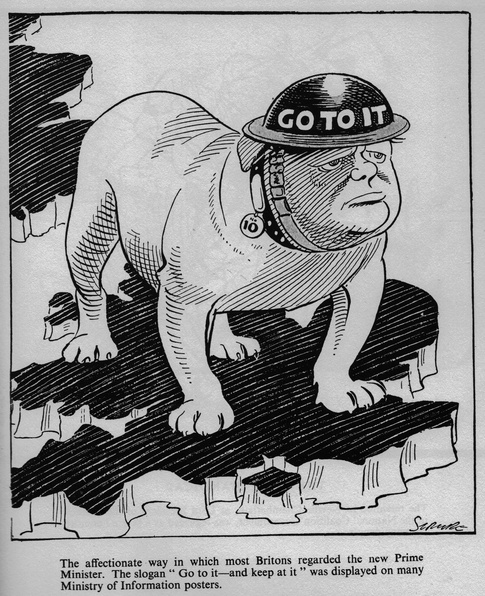
The greatest orators, both in recent history and in ancient times, will use more than one kind of appeal within their speech in order to truly reach their whole audience. Winston Churchill in his address Sinews of Peace is no exception to this.
In the 19th and 20th paragraphs of his address, Sir Churchill mentions the ominous consequences that lay on the horizon if the shade left by the ending of the second world war is not dealt with properly. He uses phrases such as "A shadow has fallen" and "time may be short" within these paragraphs. These somewhat dark and foreboding words touch upon the emotions of fear, anxiety, and worry. Churchill uses his authority as access to these emotions, for if someone as great, as powerful, and as influential as he believes there should be fear and urgency regarding his subject matter. This is a stark example of the pathos appeal.
The appeal to ethos, or appeal to one's character is present in this speech right from the very beginning. Sir Churchill begins his address by discussing directly some of his impressive education credentials. He does so in a playful, yet candid manner that allows him to tread into self aggrandizement without drowning in the depths of bravado and boastfulness. This plays to one of his great strengths throughout the speech, his own authority. The respect that the audience currently has for Sir Churchill also greatly adds to his ability to appeal in such a way to himself that others might be criticized for.
By using these appeals in tandem, Winston Churchill weaves a powerful and moving speech regarding the importance of proactive peacefulness in the world theater. His word choices play to the emotion of fear that is currently still effervescent in the world, and he discusses to some degree his station as Prime Minister and various other accolades to hammer in to the audience that this topic is both serious and of great import.
Picture Credit:
https://www.google.com/url?sa=i&source=images&cd=&cad=rja&uact=8&ved=2ahUKEwi969qp_PPeAhWMZd8KHalaCHgQjRx6BAgBEAU&url=https%3A%2F%2Flincolnandchurchill.org%2Fchurchill%2Fchurchill-in-cartoons%2F&psig=AOvVaw0F52venkwj-dqilIVVD2Mn&ust=1543387364390661

You make a good point about Churchill solidifying his authority without being too boastful. It really makes a difference that the speaker making these calls to action is respected and experienced; I don't think the speech would have been the same without those credentials backing it up.
ReplyDeleteAs you noticed, using fear as a motivating tool can be a powerful but tricky rhetorical device. I think of preachers who threaten hellfire and damnation to bring their congregations in. However, I feel that Churchill does not do so perversely-- rather, he is genuinely concerned for and warning about the welfare of the human race.
ReplyDeleteChurchill does gain credibility through his authority, but as you mentioned, he isn't self-aggrandizing. He even says, "Let me...make it clear...that I speak only for myself. There is nothing here but what you see." That vulnerability and honesty peels off any mask he might've had and builds him up in his audience's eyes because of his humility and openness.
ReplyDelete